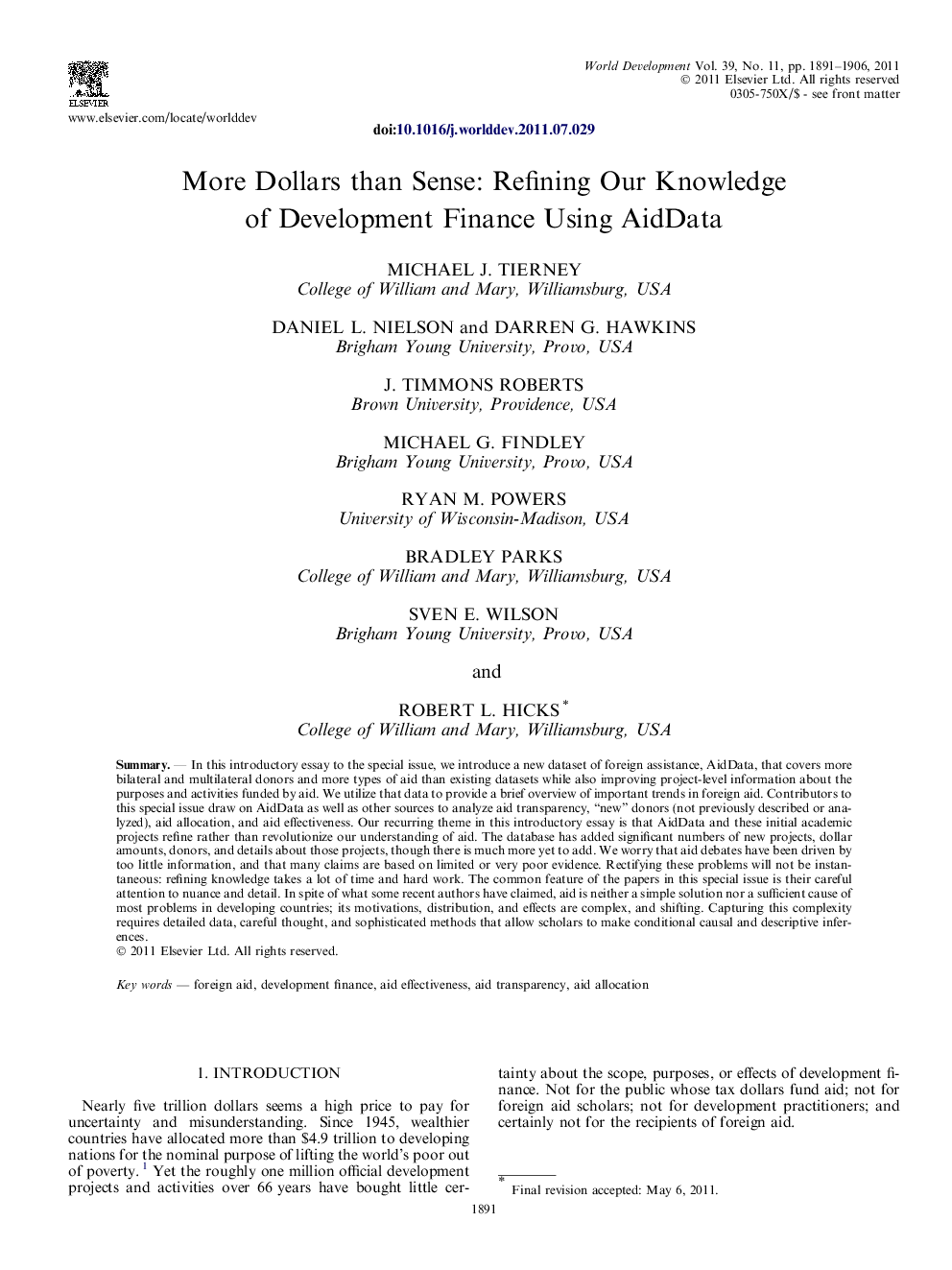| Article ID | Journal | Published Year | Pages | File Type |
|---|---|---|---|---|
| 990839 | World Development | 2011 | 16 Pages |
SummaryIn this introductory essay to the special issue, we introduce a new dataset of foreign assistance, AidData, that covers more bilateral and multilateral donors and more types of aid than existing datasets while also improving project-level information about the purposes and activities funded by aid. We utilize that data to provide a brief overview of important trends in foreign aid. Contributors to this special issue draw on AidData as well as other sources to analyze aid transparency, “new” donors (not previously described or analyzed), aid allocation, and aid effectiveness. Our recurring theme in this introductory essay is that AidData and these initial academic projects refine rather than revolutionize our understanding of aid. The database has added significant numbers of new projects, dollar amounts, donors, and details about those projects, though there is much more yet to add. We worry that aid debates have been driven by too little information, and that many claims are based on limited or very poor evidence. Rectifying these problems will not be instantaneous: refining knowledge takes a lot of time and hard work. The common feature of the papers in this special issue is their careful attention to nuance and detail. In spite of what some recent authors have claimed, aid is neither a simple solution nor a sufficient cause of most problems in developing countries; its motivations, distribution, and effects are complex, and shifting. Capturing this complexity requires detailed data, careful thought, and sophisticated methods that allow scholars to make conditional causal and descriptive inferences.
